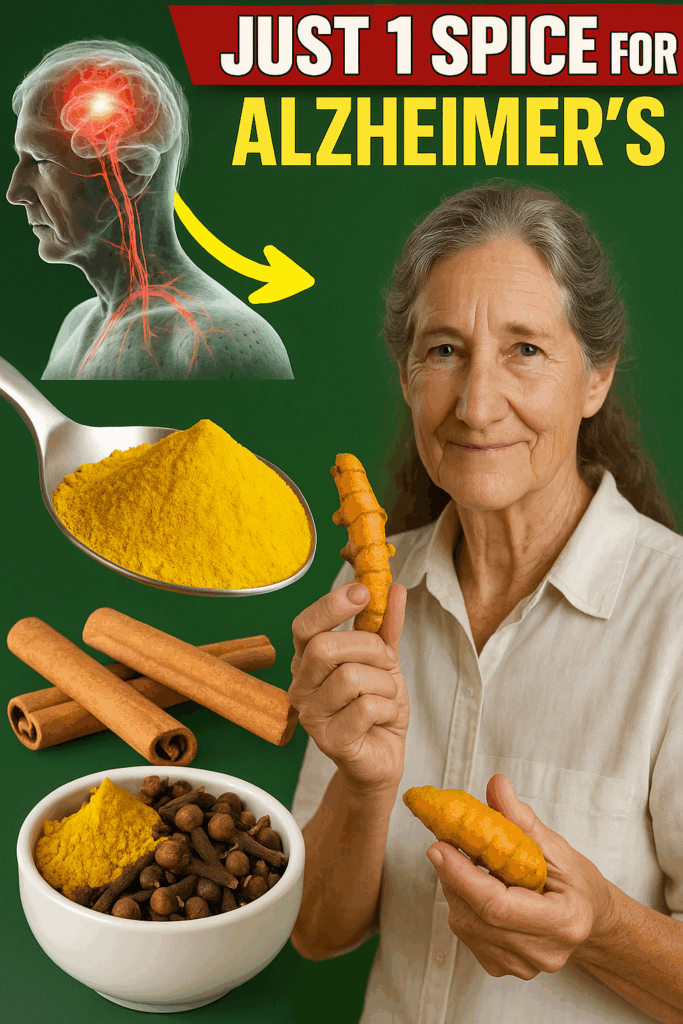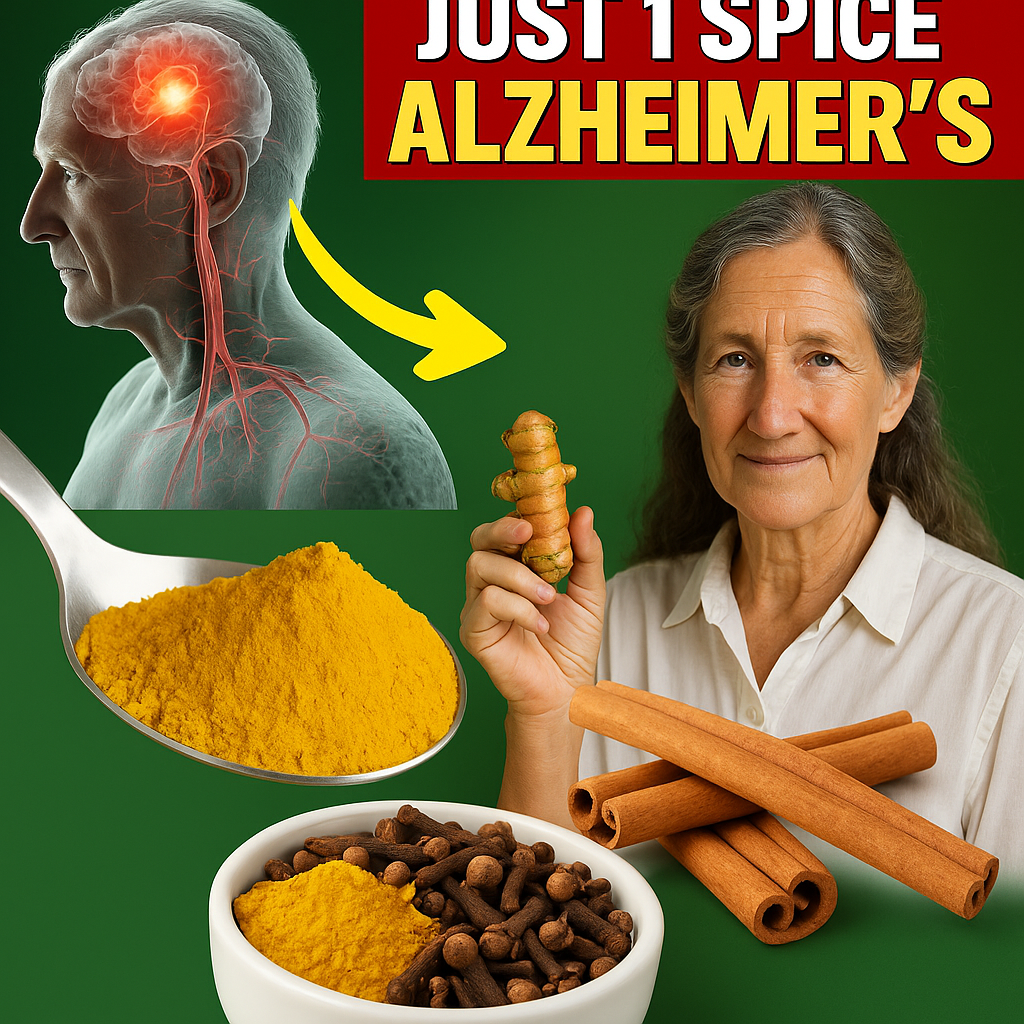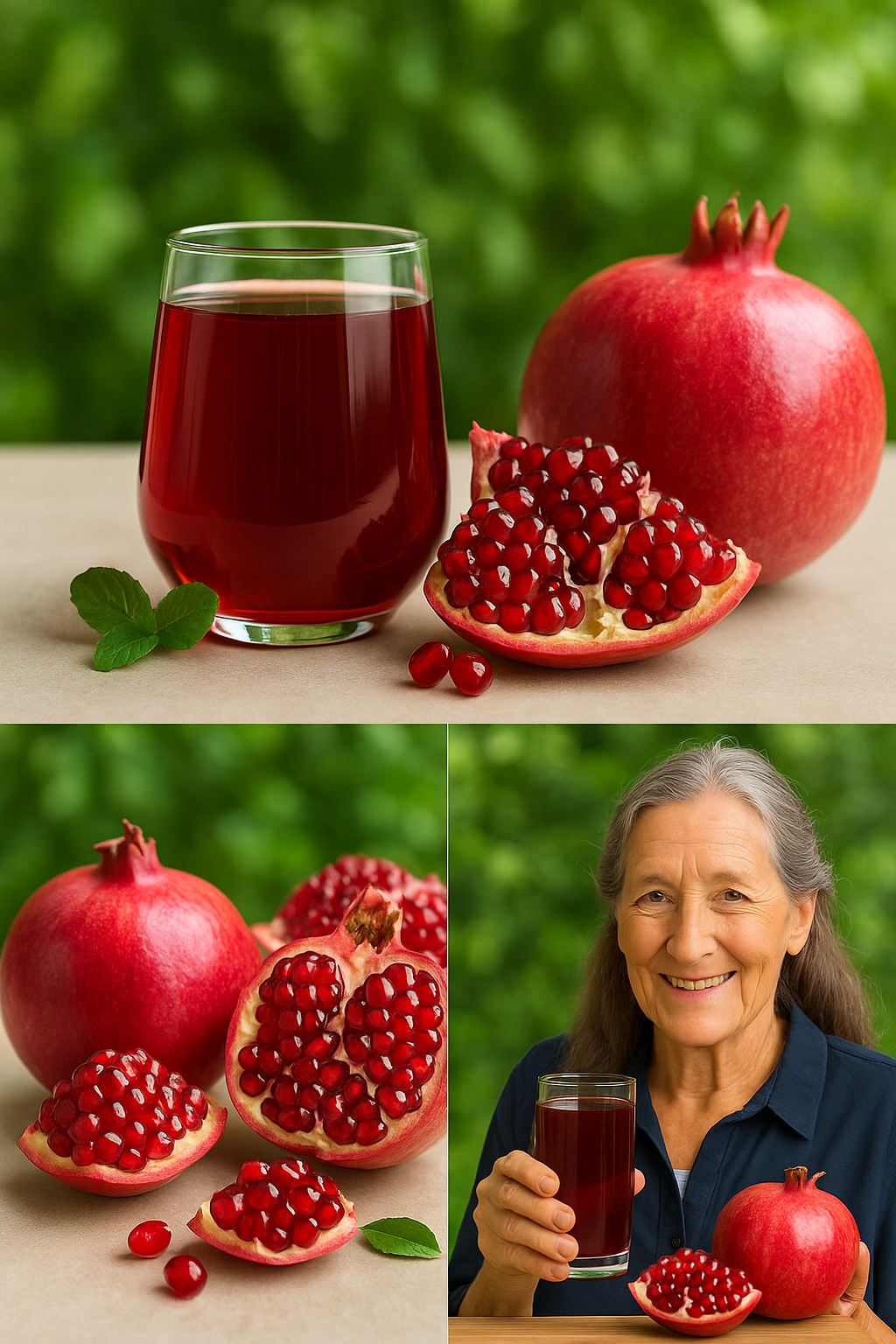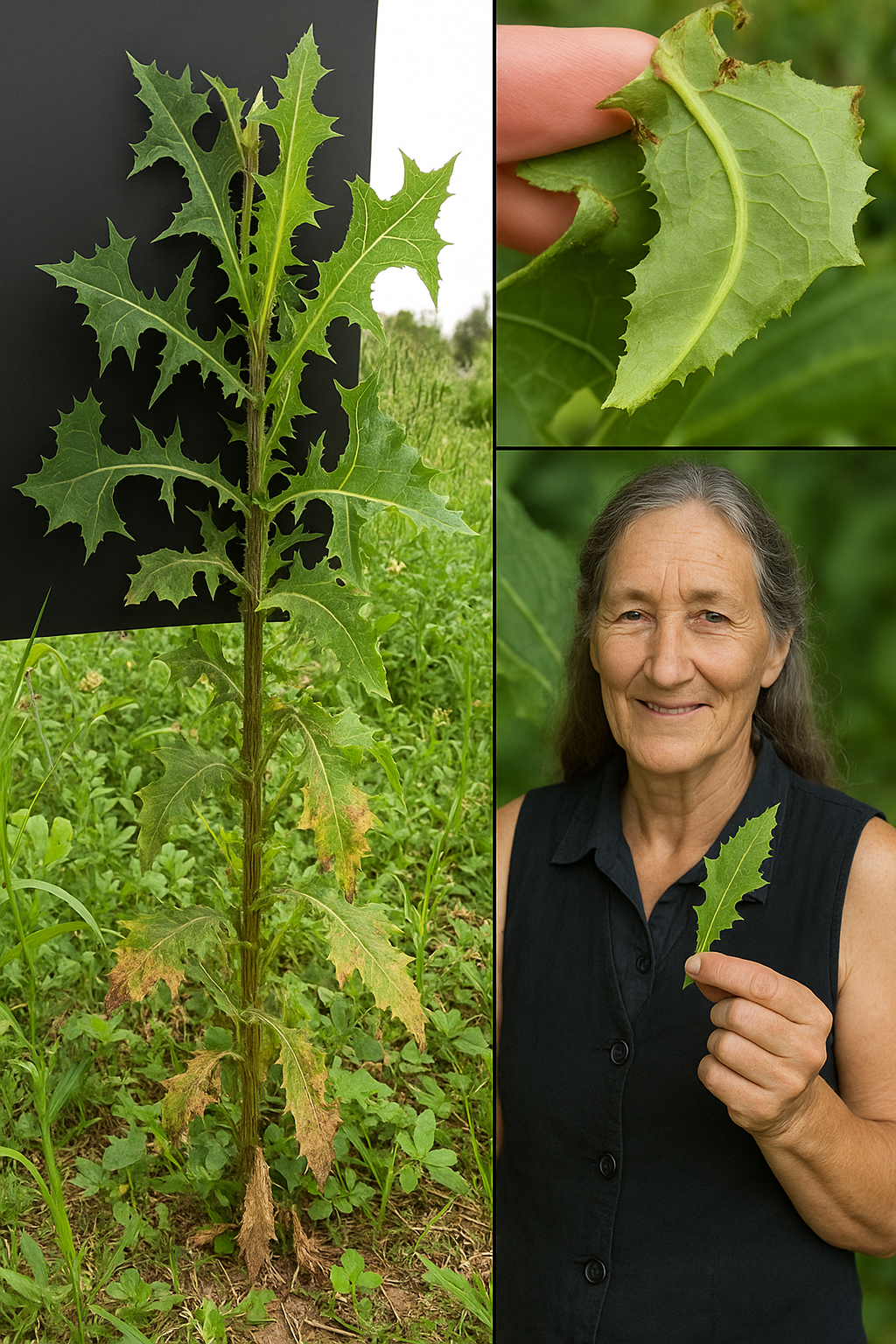🧠 Imagine if the secret to preserving your memory, focus, and independence wasn’t locked inside a laboratory—but hidden in your spice rack.
When most people think about preventing Alzheimer’s or dementia, they picture complicated supplements, prescription medications, or high-tech therapies. But what if something as simple—and as fragrant—as a spice could quietly protect your brain every single day?
If you’re over 50, the risk of cognitive decline becomes real. But so does the power of prevention.
And among the powerful spices studied for their brain-boosting potential, one in particular stands out—not turmeric, not cinnamon, but something far more unexpected…
Let’s explore seven scientifically backed spices that may help protect and nourish your brain—then uncover the one that could be the most underestimated ally in your fight against age-related memory loss.

🟡 1. Cloves – The Unexpected Brain Guardian
Cloves might not be the first spice you reach for—but it could be the one your brain needs most.
Why? Because cloves are loaded with eugenol, a powerful compound with antioxidant and anti-inflammatory effects. This unique molecule helps reduce oxidative stress, one of the leading contributors to Alzheimer’s and other neurodegenerative disorders.
Early studies show that cloves may:
- Enhance memory retention
- Reduce inflammation in the brain
- Fight off the free radicals that damage brain cells
Whether brewed into tea or sprinkled into meals, cloves are an unsung hero for cognitive longevity.
⚫ 2. Black Pepper – The Amplifier
Black pepper doesn’t just add spice—it increases the effectiveness of other brain-boosting compounds, especially curcumin (found in turmeric).
Thanks to piperine, black pepper helps your body absorb and retain nutrients more efficiently. It also plays its own role in reducing neuroinflammation.
Adding just a dash to meals can amplify the protective effects of other spices and support your cognitive function.
🌱 3. Ginger – The Cognitive Stimulator
You already know ginger can soothe your stomach—but its benefits go far beyond digestion.
Ginger contains gingerols and shogaols, compounds that have been shown to improve neurotransmitter function and protect neurons from oxidative damage. Research suggests it may:
- Improve short-term memory
- Enhance reaction time
- Support long-term brain health
A warm cup of ginger tea could be doing more for your brain than you realize.
🌿 4. Rosemary – The Memory Enhancer
Even the scent of rosemary has been shown to improve memory in clinical studies.
This fragrant herb contains carnosic acid, which protects brain cells from aging and stimulates new nerve growth. It also improves circulation—essential for nourishing the brain with oxygen and nutrients.
Try rosemary with roasted vegetables or steeped in oil for daily cognitive support.
🌾 5. Sage – The Ancient Cognitive Tonic
Used in traditional medicine for centuries, sage is now supported by science as a brain booster—especially for older adults.
Sage can:
- Improve memory and focus
- Inhibit enzymes that break down acetylcholine (a key brain chemical for learning and memory)
- Reduce inflammation in the nervous system
Sage tea or a sprinkle of dried sage in your meals could help support sharper thinking as you age.
🧁 6. Cinnamon – The Sweet Protector
This sweet spice is more than just a treat—it’s a brain ally.
Cinnamon is rich in polyphenols and antioxidants that protect neurons from degeneration. Studies suggest cinnamon may:
- Improve motor skills in Alzheimer’s models
- Enhance memory and cognitive processing
- Regulate blood sugar—important for long-term brain health
A sprinkle on oatmeal or coffee can offer both taste and neuroprotection.
🟠 7. Turmeric – The Golden Standard of Brain Support
Turmeric has earned its fame in brain health conversations, and for good reason.
Its active compound curcumin has been shown to:
- Reduce amyloid plaques associated with Alzheimer’s
- Boost Brain-Derived Neurotrophic Factor (BDNF), which supports brain cell growth
- Fight inflammation and oxidative stress
For best absorption, pair turmeric with black pepper. Together, they form a potent duo for cognitive defense.
🌟 So, Which Spice Stands Out the Most?
Surprisingly, cloves may offer the most powerful brain protection of them all—thanks to their high antioxidant content and unique ability to calm inflammation in the brain. Yet they remain one of the most overlooked spices in most kitchens.
💡 How to Make Brain-Supporting Spices Part of Your Daily Life
🕖 Morning: Start with a cup of turmeric or ginger tea, always with a pinch of black pepper for maximum effect
🥗 Lunch: Add fresh rosemary and sage to salads or dressings
🍲 Dinner: Cook with ground cloves and cinnamon to combine flavor with function
🍎 Snacks: Dust cinnamon on apple slices or yogurt for a brain-friendly treat

👁️🗨️ Why These Spices Matter After 50
After age 50, your body changes—and so does your brain. Neuroplasticity slows, inflammation may rise, and oxidative damage can build silently.
But these spices offer more than flavor. They’re functional tools—powerful enough to influence memory, mood, and even your risk of cognitive decline. And they’re easy to use. No pills. No complex regimens. Just real ingredients doing real work in your body.
🧠 Final Thought: Spice Your Food, Sharpen Your Mind
There’s no magic bullet to prevent Alzheimer’s or dementia. But science points toward simple, daily actions that can make a real difference. By incorporating these brain-friendly spices into your routine, you’re giving your mind what it needs to stay clear, sharp, and resilient—well into the future.
Start with one spice today. Make it a habit. And every bite will become an act of protection for the most valuable thing you have: your mind.


